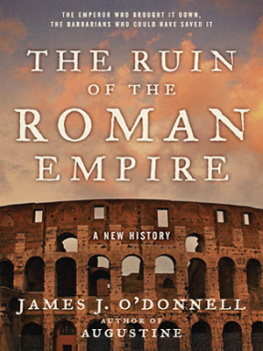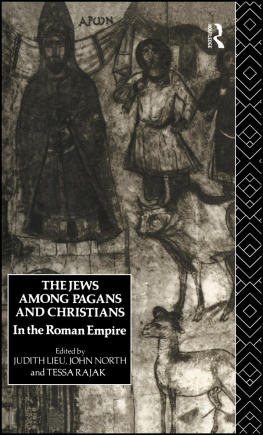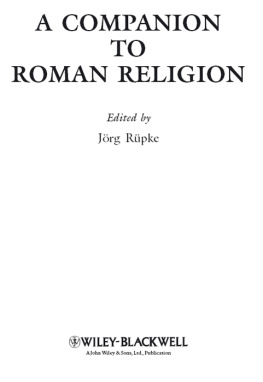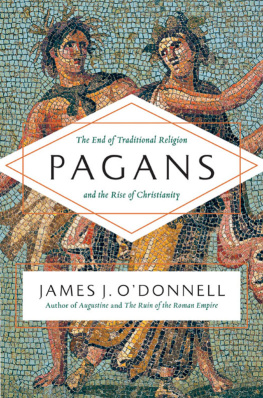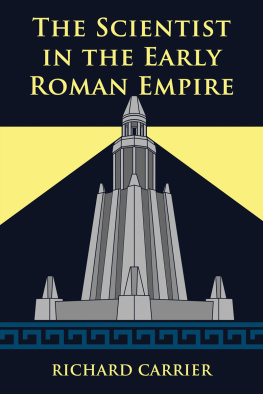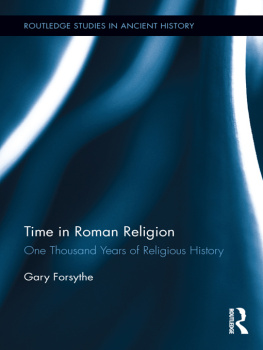W HEN P OLYNICES QUARRELED WITH HIS BROTHER , E TEOCLES , over control of ancient Thebes, he raised an army led by seven mighty captains. Capaneus among them was notorious for his arrogance. On his shield was the image of a warrior with no weapon but a torch, instrument of an ancient citys most dreaded threatfire. He appears in Aeschyluss Seven Against Thebes, but his best scene comes in the Latin Thebes epic of Statius. There, as battle rages, Capaneus, mighty and arrogant, scales a high tower of the city wall, aroar with boasting. All the defenders launch their catapults and javelins against him, to no avail. Taunting his enemies, he begins to rip walls apart with his bare hands.
Watching from high on Olympus, the gods are in full dither, taking sides in the war and clamoring for Jupiters attention and favor. Bacchus, Apollo, Juno: they all fret and fume as storm clouds gather over the divine palace itself. Then Capaneus bellows his challenge:
Are there no gods to defend this quaking Thebes? Where are the coward gods who were born here? You, Jupiter, do your best against me with all your flames! Or are you only brave when youre scaring timid girls?
Now even Jupiter snorts with angry laughter, and suddenly clouds rush together, the sun vanishes, and storms brew in silence without a gust of wind. A moments poise of terror, the warrior on his height, heaven holding its breath: then the storm begins for real, lightning crashing on all sides, and Capaneus gets one last line:
Here are the fires I need for Thebes! From these lightning bolts, I will refresh my torch!
Then a thunderbolt strikes him, flung from above with all the power of the king of the gods. Capaneus looks like a ball of flame on his high perch as the armies draw back in fear, not knowing where he might fall. Helmet and hair catch flame, his armor becomes a fiery furnace, but he stands firm there still, gasping his life away. At last, beyond endurance, he fails and falls in a mighty roar and crashto the great relief of the bystanders, who could feel a second, mightier thunderbolt gathering strength in case it was needed.
S O DO YOU BELIEVE in gods?
No, I didnt ask, Do you believe in God? Thats a very different question. I mean, do you believe in the gods Capaneus challenged, Jupiter and Juno and that crowd? What about Serapis and the Thracian rider god and Epona the Gaulish god who looked after the horses once they got back to the stablesdo you believe in them? Do you believe that once upon a time there were such beings who went about the world with superhuman powers of various kinds, interfering in the ordinary run of events?
No, I dont either.
How was it, then, that once upon a time, people all across western Asia, the Mediterranean basin, and Europe took for granted that such gods existed, were found everywhere, and involved themselves in running the worldand then one day didnt think that way any longer? As late as 300 CE, no one could have imagined a world without those traditional gods, lords since time immemorial. A century and a half later, few could remember what the world with those gods had been like.
Their passing, as we will see, was disconcertingly easy and undramatic. The Christians who prevailed made the noiseso much that moderns were long persuaded that there had been a mighty struggle, pagans versus Christians, somewhere on the scale of Ali versus Frazier or the Thirty Years War. It just wasnt so.
Yes, the variety of religious stories, beliefs, and practices in that old world was simply too vast to comprehend, so their disappearance is all the more remarkable. Altars in homes, shrines on street corners, and public ceremonies in the open air made ancient Rome more akin to Kathmandu during festival season than anything we could imagine in modern Europe. No one could inventory that world in one book and I will not try. The modern scholars who bring together the evidence for what Greeks and Romans and Egyptians and Jews and Phoenicians and Scythians and Carthaginians and Thracians and Gauls did about their gods deserve vast respect for taking on an endless and thankless task. The story of what happened when those gods passed is easier to grasp and colorful enough. Its also important for us todayand easy to get wrong.
Sure, everybody knowsthough always be careful of what everybody knowsthat there were once pagans and Christians, people of the old and people of the new, engaged in that mighty struggle that only one side could win. The new prevailed. Conflict like that makes for great stories and the paganChristian dustup tale has been written repeatedly.never existed needs a different kind of story. Its not a question of who vanquished whom, but of just what changed when and where.
Remember, the story of Christianitys rise takes a long time, from Jesuss lifetime to the emperor Constantines conversion, three centuries. The traditional way to think about it is to imagine fervent Christians adding to their number, each generation larger than the last, carrying a pristine Christian message to the world. On that model, when the last Roman citizen was baptized, everyone had become what the earliest Christians had been.
The world doesnt work that way. Whatever core ideas Christianity sought to transmit, every baptism brought someone unshaped by Christianity into the fold, mixing their ideas and expectations with what they found. The pristine essence of Christianity acquired a lot of old-fashioned baggage along the way. When Christians talked about their pure and unique gift of illumination for a dark world, who really needed to be persuaded?
The storytelling is itself important. For us, religion comes with history, and history matters. No classical Greek or Roman writer ever thought to address the history of religion, because religion was woven seamlessly into everyday life, the kind of life that has no history to speak of. Our modern historians can make history for everything, to be sure, but when they reconstruct a story for Greco-Roman religion, they tell a story the ancients didnt themselves know. And when they do so, they are in cahoots with the story-making Christians of the fourth century.
So the first half of this book is about that ancient world of religion that had no history. The second part will show what happened when religion acquired a history in the fourth century CE.
The apparent victory of the Christians then was one upheaval among many. The fundamental notion of divine power itself had grown so large in the hands of various philosophers and cults that it overpowered the small, quarrelsome gods of old. Earlier practices, like blood sacrifice and augury, had faded so much from favor that they almost didnt need abolishing. Fresh ideas are always exciting, and well see how Judaism reinvented itself for a new world, while Christianity discovered its ability to take advantage of unearned good luck and make itself powerful in a way that crossed boundaries between empires and nations, between genders, and between classes.
To go back to the world of the gods and their worshippers, we must learn to do without a coherent story. Indeed, we must forget much of what we take for granted about religionlike its intimate connection to questions of ethical conduct. And we will see that what people thought about gods was much less important than what they did about them.


